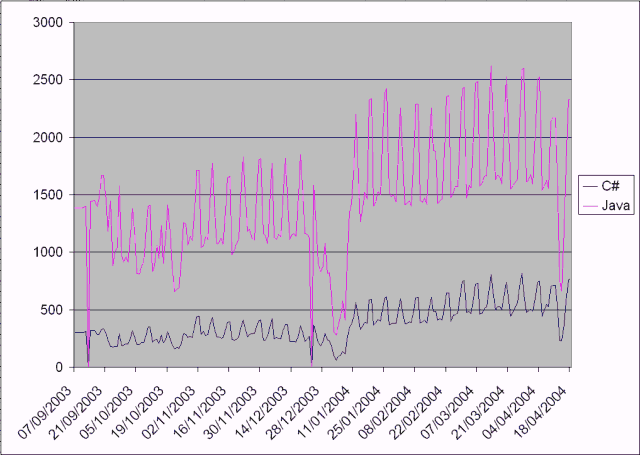Been listening to the b side version of “Fit But You Know It” by the Streets a lot (featuring Kano, Donnae’o, Lady Sovereign, Tinchy Stryder). Check it out, I think it actually might be better than the a side. Can’t find the lyrics anywhere on the web so here’s my best stab, mail any corrections to streets@bluebones.net:
Updated 19 July with the correct lyrics from Funmilola Thomas.
Fit But You Know It
Playing in a different league from me girl
I ain’t even trying to speak girl
You ain’t playing right
You’re just too damn vain for me girl
Playing in a different league from me girl
I ain’t even trying to speak girl
You ain’t playing right
Kano:
Once upon a time I was on a chick
She was on ‘im but I knew that she was full of shit
She knew she was fine, she knew she was fit
I linked her, she said she was on, but she was on my dick
It was all a game, it was all a trick
I’ll never fall for it again, that’s out of order b’
I should’a cooled it, but now I’m cool
I boom, bounce back but a fool, old school, watch her come running back
I ain’t a player, I crush a lot
I’m like pull a lot
Plus I got like a hundred gash
And you ain’t one of em
I like to have fun when I’m done with em
Plus I knows you like my songs cos you was humming em
But you’re a teaser playing games cuz im a cheater
You really think you’re the 2004 Mona Lisa
You ain’t Beyonce
You ain’t either
Come down from cloud nine
You really think you’re a diva
You’re just too damn vain for me girl
Playing in a different league from me girl
I ain’t even trying to speak girl
You ain’t playing right
You’re just too damn vain for me girl
Playing in a different league from me girl
I ain’t even trying to speak girl
You ain’t playing right
Donae’o:
Yeah uh
You might be buff and all that
Doing your stuff and all that
But I don’t care enough and all that
Cos I got a girl
And the reason for me being so stush is easily reasoned
Cos for me being heathen, simply it ain’t needed
And just because you got double Ds
Don’t mean you can trouble me
Those sausage lips they’ve got to get, get got some girls not with it
But the guy there he’s hot for it
Go check for him he’s next to kim
He’s into airhead, skin and bone
But that’s not for me I like big and bold
Mike Skinner:
Since I’ve been thinking deeply
I might try to see
About maybe going down to get my ears pierced
It’s a slightly different result for me
Than the one I was unroathed and like usually
I’m told it will prepare my mind surely
For having a wifey four timely a week
You know know how to deal with pain like I fought see
And of course you’re required to buy jewelry
You’re just too damn vain for me girl
Playing in a different league from me girl
I ain’t even trying to speak girl
You ain’t playing right
You’re just too damn vain for me girl
Playing in a different league from me girl
I ain’t even trying to speak girl
You ain’t playing right
Lady Sovereign:
<spoken>
I saw u lookin at me Oi what are you turning away for man diz is shite ur
lyk a sparrow dat dnt work u dnt chirps ur a boy</spoken>
Anyway, yo,
And I fink I’m nice
I know I’m nice
Cos your eyes look twice
Up down left right
Left right left right
Was wearing baggy jeans and a tight top
Cleavage tryin to show im den i saw sumfin in his trousers growin
And I know you was looking at me
Cos the girls behind me were looking off key
Don’ I know this
You’re just a sparrow
That really don’t work cos u not chirps, boy you’re hopeless
Tinchy Stryder:
She’s one of them girls who knows she’s looking more than nice
Even on a bad day I’m looking more than twice
Her eyes – it’s like they’re hypnotising all these guys
Meanwhile although she’s calling shots – no surprise
In her head she knows it – that cos of her they fantasize
So she controls it those mind games with other guys
But I don’t care if she’s buff and that
She ain’t gonna get no love from me
She’s just another girl to me
I’m Strider man thats that
You’re just too damn vain for me girl
Playing in a different league from me girl
I ain’t even trying to speak girl
You ain’t playing right
You’re just too damn vain for me girl
Playing in a different league from me girl
I ain’t even trying to speak girl
You ain’t playing right

